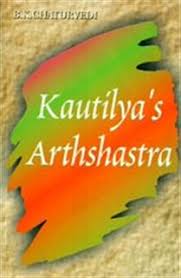 History of Judiciary in INDIA….. History of Judiciary in INDIA…..
The concept of Dharma or law in ancient India was inspired by the Vedas which contained rules of conduct and rites and compiled in Dharma Sutras, were practiced in a number of branches of the Vedic schools. Their principal contents address the duties of people at various stages of life, the rights and duties of the kings and juridical matters. These were basis of Hindu Law. The earliest document throwing light on the theory of jurisprudence, which forms part of practical governance, is the Artha Sastra of Kautilya dating back to circa300 B.C. The third chapter deals with Vyavahara i.e. transactions between two or more parties or Vivada or disputation.
During the first seven centuries of Christian era, there evolved a number of Dharma sastras which dealt extensively with Manu, Yajnavalkya, Narda and Parashara smiritis etc.
The Sultanate Period….. In medieval India, the religious leaders endeavoured to transform Islam into a religion of law, but as custodian of justice, the rulers made the Sharia, a court subservient to their sovereign power. Theoretically the rulers had to be obedient to the Sharia and history speaks about certain cases where sovereigns unhesistengly submitted to the Qazi’s decision. The rulers sat in a Court known as Mazalim (complaints). According to Ibn Battuta, Muhammad bin Tughalaq,ruler of Tughalaq dynasty, heard complaints each Monday and Thursday. From 13th century onwards, an officer known as Amir-i- dad presided over the secular Court in sultan’s absence. He was also responsible for implementing Qazis’ decisions and for drawing their attention to the cases which constituted miscarriage of justice. The Muftis were the expert on Sharia law and gave Fatwas (formal legal rulings) on disputes referred to them by members of the public or qazis. The Chief Judge of the sultanate was known as the qazi –i- mamalik also known as the qazi- ul- quzat.
Mughals During Mughals period the secular judge was known as Mir- adl . He acted as a judge on the Emperor’s behalf. He was required to make impartial and personal inquiries. He was also responsible for implementing qazi’s decisions. Emperor Akbar also appointed two officers, called tui-begis, to supervise the adherence to the law and fixed a nominal amount as their fee. The same system was followed till British took over the power of India.
| 


